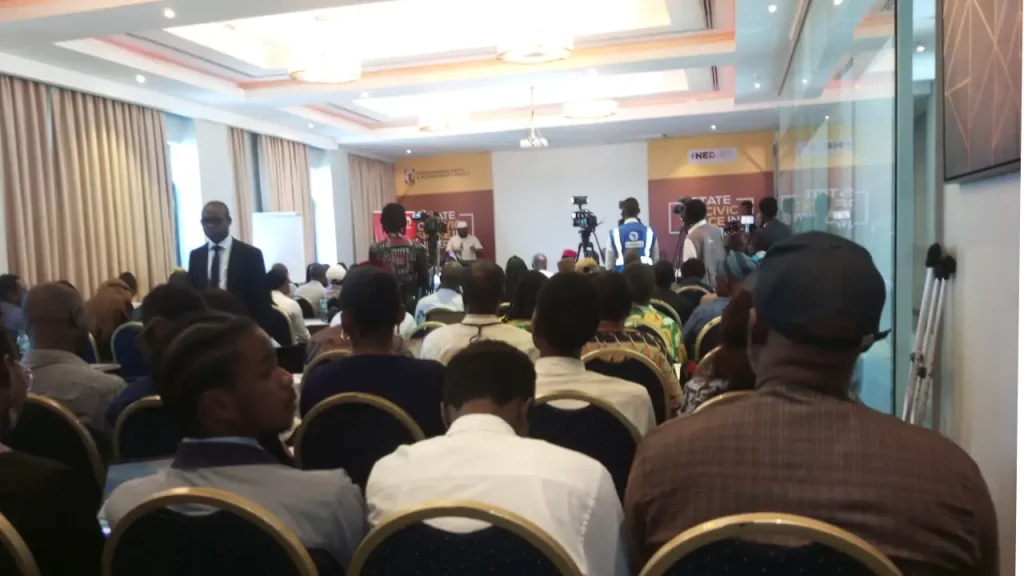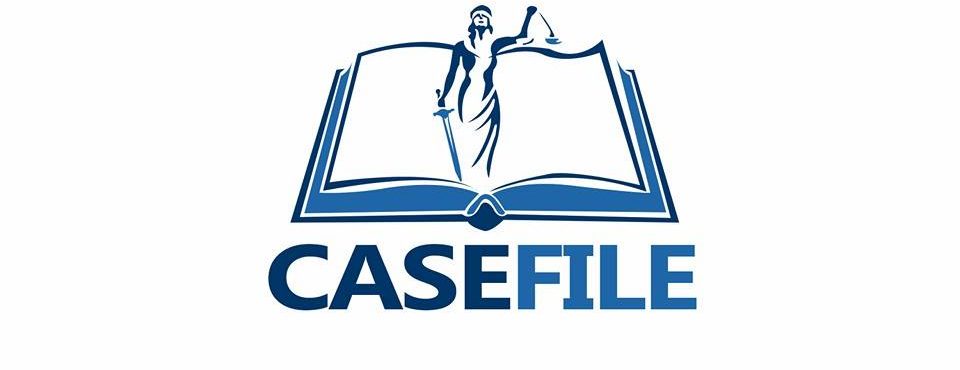A lawmaker, Honourable Akintunde Rotimi Jr. the Chairman of the House Committee on Media and Public Affairs has said that there’s need to combat the issues around fake news and unnecessary defamation of people.

The Spokesperson of the current lawmakers also emphasised the need for constant engagement of the civil societies and those in government and that civil society should not see any adversarial tensions between them and the government.
He was speaking at the side-line of the launching of a report titled: ‘Crackdown On Media Freedom And Civic Space In Nigeria’, published by Socio-Economic Rights and Accountability Project, SERAP, with the support of National Endowment for Democracy, NED.
Lawmaker cautions against derogatory publications
Akintunde Rotimi explained “The fact that you are in public office does not mean that you should be subject of false derogatory, but again it’s very important that we have a robust free press and civil societies and the 10th Assembly would always continue to uphold that, both in terms of strengthening current legislation, advocating, oversighting to ensure their implementation and also looking when necessary to improve those laws, but one thing that will never happen under the 10th Assembly is to see any sort of repressive legislation that will shrink the civic space or to repress the freedom of speech. It is not going to happen under this 10th Assembly,” he boasted.
Civil Society, stakeholders should engage with lawmakers
He harped on the engagement of civil societies and other actors in the constitution review procees ongoing at the National Assembly.
The lawmaker informed, “We of the 10th Assembly of the House of Representatives, particularly have as part of our legislative agenda very robust engagement with civil societies and other actors because that is the only way we can both advance common interests.
He was reacting to the issue that the civic space is shrinking due to repressive onslaught against the media by the government.
The lawmaker held that there’s a whole lot that civil societies and media can do.
According to him, “Helping to amplify all the things that we are doing within the House, there’s a whole lot they can also benefit from engaging with us, particularly to get insights to some of the challenges that we see from the inside and how we can both be able to work together to make those amendments.”
He stressed the importance of the constitutional review process, stating that citizens should be part of the review by visiting www.hccr.gov.ng to submit memorandums to key constitutional amendment, the lawmaker representing Oye/Ikole Federal Constituency of Ekiti State said.
Akin Rotimi Jr., at the event in Ikeja, Lagos, on Tuesday, was of the view that no amount of introspection on the civil space could be described as too much or too little.
He said civil society could be improved in numerous ways and one aspect to address was inclusivity and diversity in broader society and that Civil Society Organisations, CSOs, must ensure that their structures, leadership and key decision-making reflected the diversity of the communities they served.
At the report launch, SERAP recommended the establishment of a legal framework that recognises and respects human rights.
The non-governmental organisation urged the Federal Government of Nigeria to review laws like the Official Secrets Act, Criminal Code Act and Cybercrime Act for potential restrictions on free speech and press, and amend them in line with international human rights standards and agreements, including the declaration for the development of free, independent and pluralistic press.
Dr. Olubunmi Afinowi, a lecturer at the Faculty of Law, University of Lagos, UNILAG, during the launch of the report called for the strengthening of the independence of regulatory bodies like the National Broadcasting Commission, NBC, and the Nigerian Press Council, NPC, to ensure impartial regulation and promote self-regulation within the media.
The researcher said that the recent decision of the Federal High Court on the powers of the NBC is a step in the right direction.
While stating that the government should ensure a diverse representation in the NBC and NPC, including journalist unions, civil society, and academia, SERAP advocated, “The judiciary has a role to play in this regard by ensuring that it upholds the rule of law and safeguards fundamental human rights as recognised and enshrined in the Constitution.
“Bodies like the National Human Rights Commission, the Nigeria Union of Journalists, and relevant civil society must ensure prompt and thorough investigations into the attacks on journalists and hold perpetrators accountable.”
Dr. Afinowi stated that the need for professional bodies and civil society to encourage coalitions and ensure adequate funding, capacity building and technical support for civil society organisations working on media freedom and human rights issues, adding that both the Federal and state governments should be tolerant of criticisms and perceived critical views expressed by Nigerians.
According to her, “The Nigerian government should prevail on law enforcement agencies to refrain from arbitrary arrests and frivolous charges based on exercise of the right to freedom of expression.”
SERAP further asked the Attorney General of the Federation, AGF, to push for the immediate amendment of the Cybercrimes Act and other repressive legislation and bring the laws in line with the Nigerian Constitution of 1999 (as amended) and international human rights obligations, including under the African Charter on Human and Peoples’ Rights and International Covenant on Civil and Political Rights to which Nigeria is state party.
The Secretary to the Government of the Federation, SGF, George Akume, who was represented by Simon Shingu, also insisted that the promotion and protection of civic space were regarded as a special prerequisite for increasing growth, good governance, rule of law and sustainable development.
Akume said: “As we gather here today, we are reminded of the fundamental principles of our democracy, which are freedom of association, assembly, and expression.
“These rights are not just enshrined in our Constitution, but are the bedrock of our striving democracy.
“With a vibrant civic space, we can hold our leaders accountable, but without a vibrant one, we cannot address the pressing issues facing our nation.”
Falana wants government to pay fines imposed by the Court
A Senior Advocate of Nigeria (SAN), Mrs. Funmi Falana, who represented her husband, Mr. Femi Falana (SAN), insisted that democracy is not just about voting, but also entails the right of the people to determine how they are to be governed as provided by the law.
The learned silk further posited that “the law also provided for the people to express their minds when they are not being governed properly without fear of being detained, harassed or subjected to any restrictions.”
Falana urged the government to pay damages imposed by the courts against it, even as he noted that some judges are afraid to make declarations on public interest litigations while hiding under locus standi.


